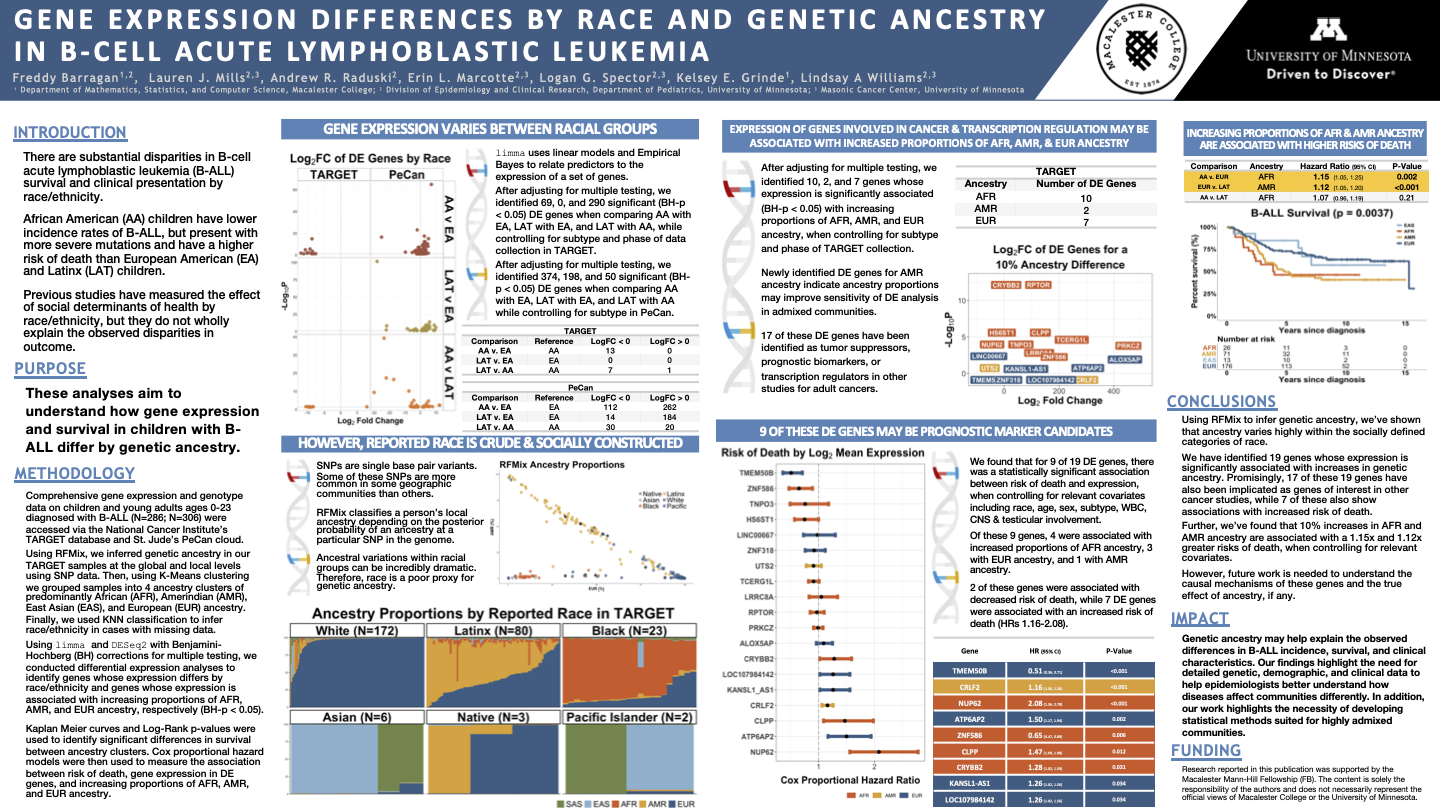This is a poster presentation on survival disparities by race/ethnicity in pediatric blood cancers for the 2021 Annual Meeting of the American Society for Human Genetics.

You can see a full size copy of the poster here!
There are documented differences in clinical presentation and survival by race/ethnicity in children with B-cell acute lymphoblastic leukemia (B-ALL) in the United States: typically, African American (AA) children present with more aggressive cancers than their European American (EA) and Latinx (LAT) counterparts and have worse survival despite EA and LAT children being more frequently diagnosed with B-ALL. Prior work has indicated that racial/ethnic differences in B-ALL outcomes cannot be wholly explained by differences in socioeconomic status or access to care.
Our findings suggest that genetic ancestry may help explain the observed differences in B-ALL incidence, survival, and clinical characteristics. Our findings also highlight the need for detailed genetic, demographic, and clinical data to help epidemiologists better understand how diseases affect communities differently. In addition, our work highlights the necessity of developing statistical methods suited for highly admixed communities.
The work presented is actually a subset of a couple projects I’ve done under my PIs: Lindsay Williams, Kelsey Grinde, and Logan Spector. And our collaborators, Lauren Mills, Andrew Raduski, and Erin Marcotte. If you’d like to check our results out, stay tuned (until it’s published)!